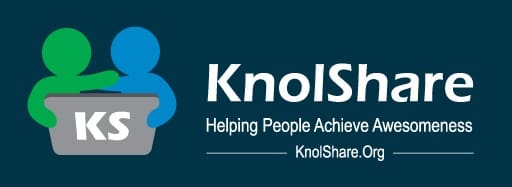E102: Adrian Terry – IT Transformation
Welcome to the KnolShare with Dr. Dave Podcast. I am Dr. Dave Cornelius, your host. We are continuing the series “Resiliently You” to discover what makes people resilient to build resilient organizations and sense belonging and healing.
My guest today is Adrian Terry.
Please provide an elevator pitch about your journey as a leader for the IT transformation.
I've served in several delivery roles within the project management discipline. I often wondered, “What is the rationale for a given effort?” I would lose sight on the WHY for the initiative not realizing that many of these efforts were needed to help transform the organization. My career now has me placed closer to the decision-making strategy table where I can help drive transformation.
How would you define resilience in context of leading an IT transformation?
Transformation is the vehicle for achieving greater resiliency. The two main avenues are (1) to transform because leaders have a vision for creating new/improving existing capabilities that provide greater value to customers, or (2) transforming because of low operational performance and losses in revenue. The first scenario is preferred over the latter. The visionary attitude for transformation has a theology that drives a more pre-emptive attitude for change as opposed to reacting to things like losing market share to the competition.
Why is resilience an important skill to cultivate in a world that is filled with Volatility, Uncertainty, Complexity and Ambiguity (VUCA)?
To be more resilient means to incorporate operating routines that are more gymnastic than traditional ways of working. While the usual tenets are to reduce operating costs, increase revenues, and improve margins…the ultimate goal with resiliency is to improve stability by helping the organization become more elastic. When this is done using a flexible strategic planning model and tools like horizon planning, the org is equipped to address the four elements of VUCA.
What makes you resilient?
An ongoing quest to understand what I DON’T know so I can make plans to learn it. I have a genuine fear of being ignorant. I want to know what I’m supposed to know. My passion for learning has distinguished me from my pears; I love the idea of Lean Agile Leadership which provides the value proposition for a growth mindset over a fixed mindset.
How do you deliver value through the IT transformation? In answering this question, can you provide a definition of what it means to deliver value?
By recognizing there will always be the next new technology and way of working, the IT transformation can serve as the tip of the spear for those initiatives that accelerate the adoption of these themes. Value through the transformation is seen in the development of UVPs, MVLs, MVPs, and other Opportunity Assessment type exercises. The transformation may not own efforts long-term but can help drive the evaluation of opportunities to determine which opportunities are best-fit/right-fit for the organization. A good example is an organization’s interviewing process. The transformation took on the idea of Panel Interviews to improve the speed for onboarding new talent. Value has realized on behalf of the hiring managers and the employees.
What are some tangible benefits gained by organizations via the IT transformation?
In addition to the realized value from the transformation initiatives, Knowledge Management is improved because of the frequency and volume of discoveries. To realize this benefit, a transformation team needs to be sourced from a good cross-section of the organization, have a high degree of collaboration in and outside of the department, exercise good psychological safety and transparency, and must deliver value early and often. Scaling these routines has infected the broader organization in a positive way.
Can you share an experience that you had when the IT transformation shifted the culture of an organization?
The day we learned about the nature of transformation. Meaning, upon concluding the move to a new operating model at my current organization, we realized that we will always be transforming into the Next-New. Transformation is ongoing as long as there is change on the horizon (which is constant in the IT context). It’s the difference between launching a transformation with specific operational goals and targets vs standing up a transformation office to continuously lead transformation requirements. The former has an expiration date, and the latter is more longer-term like a PMO.
What words of encouragement would you like to gift the listeners with today?
To not transform, means you will be left behind. Participate on at least two levels if possible: (1) serve in your organization’s transformation program and (2) initiate your own personal transformation. I am seeing positive, personal benefits from how each feeds the other.
Thank you for listening to the KnolShare with Dr. Dave podcast. I invite you to come back for more insights and perspectives that may help you with discovering resiliently you.
KnolShare with Dr. Dave Podcast is streamed on Spotify, Apple, Audible, and Google.
Thank you, Kayanna Brow-Hendrickson, for dropping the music for this podcast.
This podcast is copywritten 2022 by Dr. Dave Cornelius and knolshare.org.
Thank you for listening and stay tuned for our next episode of the resiliently you series as we continue to share our stories and experiences.
